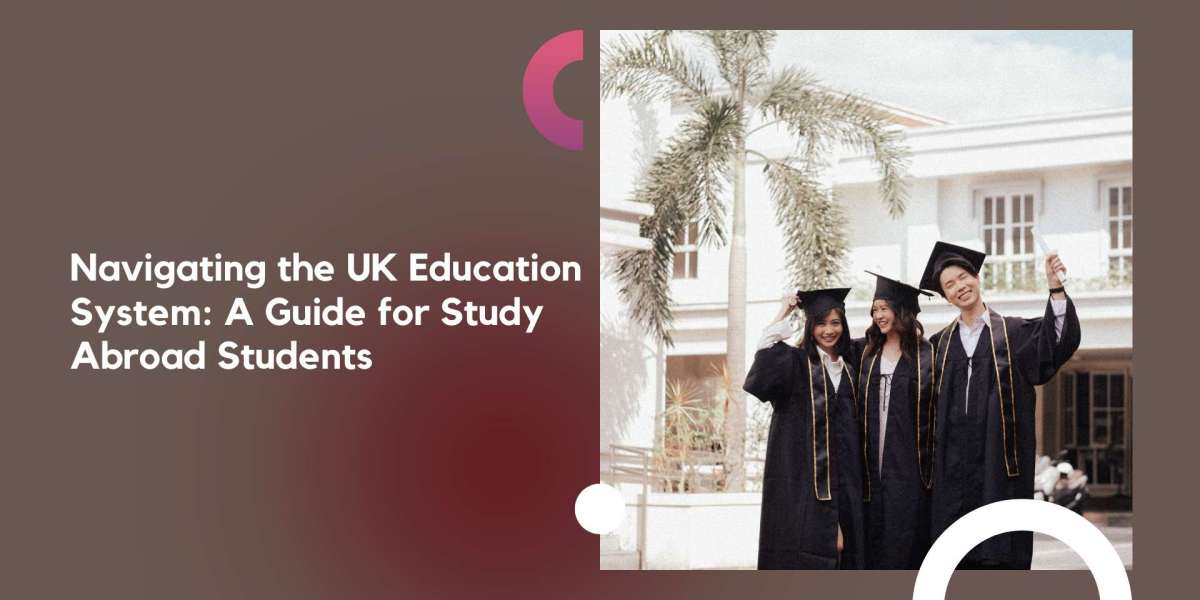The UK has long been a top destination for international students due to its prestigious universities, rich cultural experiences, and the ability to enhance one's professional and personal growth. With an education system that dates back centuries, the study in UK is renowned for its rigorous academic standards, world-class faculty, and impressive array of programs. However, navigating the UK’s education system can be complex, especially for international students. This guide offers comprehensive insights into the various aspects that study abroad students need to consider.
1. Understanding the Structure of UK Higher Education
- Degrees and Programs: In the UK, undergraduate degrees typically take three years to complete, with options to extend for joint honours or specialized programs. Master's degrees are usually one year, while PhDs can range from three to four years.
- Types of Institutions: UK higher education is offered through universities, colleges, and institutes, each with its unique focus. The Russell Group universities, for instance, are research-intensive and globally respected.
- Vocational Programs: In addition to academic courses, UK institutions also offer vocational programs, such as Higher National Diplomas (HNDs), Foundation degrees, and other qualifications catering to practical skills in industries like engineering, hospitality, and business.
2. Choosing the Right University and Program
- Criteria for University Selection: Factors such as university rankings, location, available facilities, and student support services should influence your choice.
- Role of Study Abroad Consultants: Study abroad consultants can be a valuable resource in narrowing down the best options based on your academic profile, career goals, and budget. They offer insights into which universities are best suited to different disciplines and can guide you through the complexities of the application process.
- Top Programs for International Students: The UK is particularly known for fields like business, engineering, arts and design, law, and medicine. Identifying which programs align with your career aspirations is essential.
3. The Application Process
- UCAS (Universities and Colleges Admissions Service): UCAS simplifies the application process for undergraduate programs in the UK by allowing students to apply to multiple universities with a single application. Understanding the deadlines, entry requirements, and procedures is crucial.
- Direct Applications for Postgraduate Studies: Unlike undergraduate programs, postgraduate applications are often submitted directly to the university. Requirements can vary widely, so a study abroad consultant can help ensure all documents are in order.
- Documents Required: Key documents include academic transcripts, letters of recommendation, a Statement of Purpose (SOP), and proof of English language proficiency through tests like IELTS or TOEFL.
4. Visa Requirements and Processes
- Types of Student Visas: International students usually apply for a Student visa (formerly Tier 4) to study in the UK. The visa application process includes submitting a Confirmation of Acceptance for Studies (CAS) from a UK institution.
- Visa Application Process: The application requires supporting documents, a completed application form, proof of finances, and evidence of English proficiency. Processing times vary, so starting early is advised.
- Common Challenges: Visa processing can be time-consuming and complex. A study abroad consultant can help by ensuring all paperwork is completed correctly and by offering tips on how to demonstrate financial sufficiency, a common challenge for many international students.
5. Tuition Fees and Funding Options
- Tuition Costs: Tuition fees vary depending on the university and program. For international students, fees can range from £10,000 to over £38,000 annually for some programs.
- Scholarships and Financial Aid: Many universities offer scholarships specifically for international students. Additionally, government scholarships like the Chevening Scholarship, Commonwealth Scholarship, and GREAT Scholarship provide significant financial support.
- Budgeting and Part-Time Work: Students are allowed to work part-time (up to 20 hours per week) during term time. Proper budgeting is essential, as the cost of living varies greatly across the UK, with London being more expensive than other regions.
6. Academic Culture and Expectations
- Teaching Methods: UK education emphasizes independent learning, critical thinking, and research-based assignments. Classes include lectures, seminars, and practical labs, depending on the course.
- Assessment Criteria: UK universities use a combination of written exams, coursework, presentations, and practical assessments to evaluate students.
- Adaptation Challenges for International Students: Adjusting to the academic rigor and the unique teaching style in the UK can be challenging. Utilizing university support services, such as writing centers and academic advisors, can make this transition smoother.
7. Student Accommodation and Living Arrangements
- Types of Accommodation: Options include university-owned dormitories, private rentals, and homestays. University accommodation often includes all amenities, while private rentals may require additional expenses like utilities and Wi-Fi.
- Finding Accommodation: Many universities offer accommodation services to assist students. Some students prefer living off-campus to experience more independence and find housing that suits their budget.
- Study Abroad Consultant’s Role in Accommodation: Consultants can provide guidance on securing safe and affordable housing. They often have contacts or insights on trusted accommodation options for international students.
8. Health Insurance and Medical Services
- National Health Service (NHS): International students on a Student visa for six months or longer have access to NHS services. As part of the visa application, students must pay an Immigration Health Surcharge (IHS), which covers most medical services.
- Private Health Insurance: While the NHS is comprehensive, some students may prefer additional coverage for services not included, such as dental or vision care.
9. Career Services and Post-Study Opportunities
- Graduate Route Visa: The Graduate Route Visa allows students to stay in the UK for two years post-graduation to gain work experience, making the UK a highly attractive option for career-minded students.
- Career Services at Universities: Most universities in the UK have career services that offer guidance on internships, CV building, and job placement. Leveraging these resources is essential for enhancing employability in the competitive UK job market.
- Networking and Internships: The UK education system encourages internships and networking opportunities, which can be instrumental in securing post-study work opportunities.
10. Tips for Adjusting to Life in the UK
- Cultural Adjustment: The UK is a multicultural country, but it’s essential to respect local customs and etiquette. Participating in university-organized events and clubs can be a great way to meet people and adapt.
- Student Support Services: Universities offer mental health services, academic support, and social activities to help international students settle in. Consulting these services can greatly enhance a student’s experience.
- Role of Study Abroad Consultants in Transitioning: A good study abroad consultant prepares students not only for academic success but also for cultural adaptation. They provide tips on everything from opening a bank account to navigating public transport.
11. Returning Home or Continuing to Work in the UK
- Reintegration and Transfer of Skills: Upon completing studies, some students return home, while others aim to secure permanent roles in the UK. UK degrees are highly respected globally, which can open doors in various countries.
- Alumni Networks and Resources: Many UK universities have active alumni networks, both in the UK and internationally, which offer valuable networking opportunities and career support for graduates.
Conclusion: Your Pathway to a Successful Study Abroad Experience in the UK
Studying in the UK offers immense benefits, from world-class education to invaluable life experiences. However, the process requires careful planning, understanding of cultural nuances, and financial preparation. A study abroad consultant can make a substantial difference by providing personalized guidance, reducing stress, and helping students make the most of their experience in the UK. With the right resources and support, international students can navigate the complexities of the UK education system and thrive academically, professionally, and personally.








